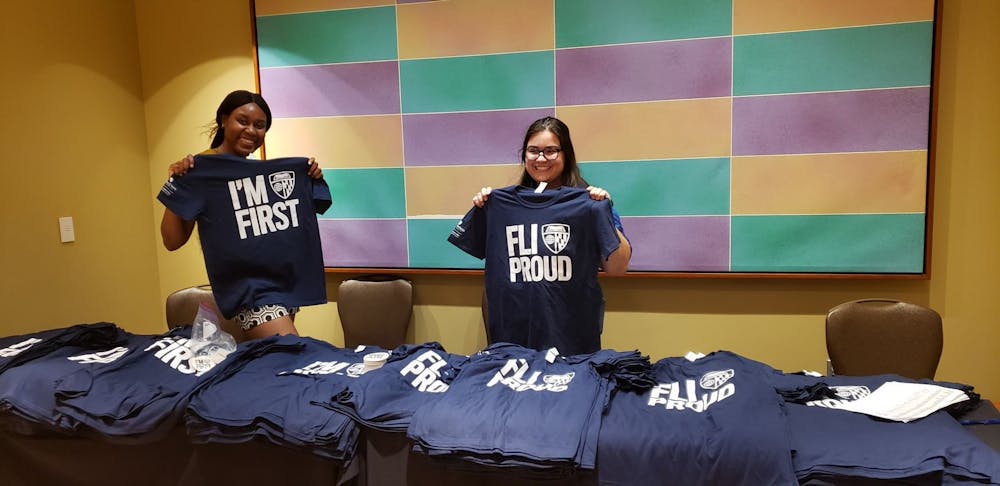As part of its Food for Thought Dinner Series, the Hopkins First-Generation, Low-Income (FLI) Network hosted a talk called “Post-Graduation Realities from a FLI Perspective” on Thursday, Nov. 7. The Network is part of the University’s mission to help FLI students share their backgrounds and flourish.
At the event, Linda DeLibero, the director of the Program in Film and Media Studies, discussed how students could navigate the workforce without family ties to industry leaders or companies. She also described how FLI students could pursue graduate-level education with the help of alumni networks.
She said she was fortunate enough to attend the school of her dreams because her parents worked hard to give her the opportunity they didn’t have. The trade-off, she said, was that she had to live at home, making the social aspect of university difficult. Many students at her university, she said, did not understand her situation, which extended into her post-graduation experience.
“I knew some students who had parents who were in the industry or who came from a private school background and had an instant network of people they could tap into. For them it was, ‘Oh, mom and dad own an apartment in Manhattan, so I'll just stay there after I graduate until I find a job,’” DeLibero said. “My parents didn't know how to help me. They had no idea and I had no idea. I was incredibly ignorant, and I didn't prepare myself very well for the realities of finding a job.”
She cites relationships with professors as a critical component of post-graduation success. Professors can write excellent recommendation letters, and many will also help their students land interviews or internships, DeLibero noted.
“The first thing you need to do is find yourself a mentor or mentors. It could be a professor you've taken a class with, or one who you just feel like, “This is somebody I can talk to,’” she said. “Those are the people who get you jobs, that cultivate you. If they like you and respect you and want to help you, they're going to make sure you stay in school or at that job.”
In order to forge connections with professors, one needs to speak up in class, DeLibero explained.
“You can't imagine how important it is from the professor's standpoint when they see that you're talking. They really connect you to your name, and then when the class is over can you can go to them and say, ‘I'm thinking about going to grad school and I was wondering if you would talk to me about what you think are some of the better places to go,’” DeLibero said.
She also recommended connecting with recent graduates. She explained that they are not only more approachable, but that they also just endured the stressful process of job hunting, so they are likely to be more sympathetic to and helpful for undergraduates.
She stated that the Hopkins Alumni Association keeps records of people’s industries and occupations, making it a great resource for students looking to start careers.
“Reach out to the Alumni Association and ask them how you go about finding [alumni] who went to the graduate school that you want to go to, or who are doing the things you want to do,“ she said. “Even if they don't know you, they know you went to Hopkins and that they can vouch for you.”
DeLibero noted that connections do not even need to be in one’s industry of interest. She said that students never know who will be helpful down the road.
“Develop those friendships and make them lifelong because they're always going to be important to you.” DeLibero said. “They're going to be valuable to you as sounding boards, as support, personally and possibly in your career.”
Adam Tifrit, a FLI senior studying Molecular and Cellular Biology, appreciated DeLibero’s suggestions about professors and mentorships.
“The advice about where to go, administratively, for letters of recommendation made this extremely useful for me,” Tifrit said. “She also reminded us that professors are human, which makes this process easier.”
Ted Tak contributed reporting.





